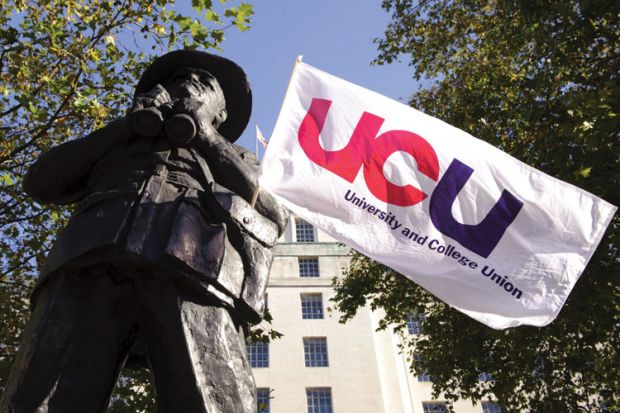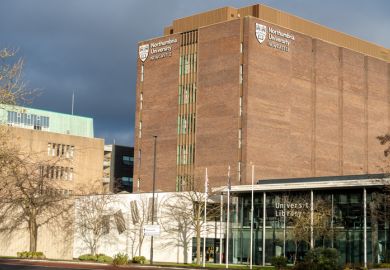A two-day walkout has begun at UK universities after crisis talks failed to resolve a pay row.
Members of the University and College Union (UCU) started the strike on 25 May, which will continue on 26 May, after a last-ditch meeting with employers held last week failed to break an impasse over a 1.1 per cent pay rise offer for 2016-17.
The national pay offer has been described as an “insult to hardworking staff” by Sally Hunt, the UCU’s general secretary, who compared it with the 5.1 per cent salary rise enjoyed by vice-chancellors last year, as revealed by Times Higher Education’s latest pay survey.
“Members have made it clear that they won’t tolerate a continued squeeze on their income, pay inequality and the increasing job insecurity blighting the sector,” said Ms Hunt.
“If the employers wish to see a swift end to this dispute, and avoid further disruption, they need to come back to the table with a much-improved offer,” she added.
However, universities – via the Universities and Colleges Employers’ Association – have said that they stand by their “fair and final” offer having listened to the various claims made by trade unions in the latest pay talks.
The offer is “at, and for some beyond, a limit of affordability for higher education institutions and the very best offer that will be available this year”, said Sir Paul Curran, vice-chancellor of City University London and chair of Ucea.
“All we seek now is for all the trade unions to put this offer to their members in full and within the context of a financially challenging year,” Sir Paul added, saying that the offer was “both fair and sustainable for institutions, their staff and students”.
Ucea also claimed that universities had said they “anticipate minor impact and minimal student disruption from UCU’s planned strike days this week”.
“They know that the vast majority of their staff understand the current funding environment and can see that the final offer, with substantial extra for the lower paid, endeavours to be fair without putting additional jobs at risk,” said a spokesman for the sector body.
“Higher education institutions overwhelmingly tell us they are anticipating ‘no to low’ impacts on both days”, he added, also saying that nine out of 10 universities predicted little effect on examinations taking place.
In a statement, Ucea added that the total value of this year’s offer is equivalent to a 2.7 per cent pay offer once incremental pay rises linked to progression are considered.
This year’s pay offer would also address the issue of pay inequality, Ucea also maintains. Under the proposed deal, the lowest pay point on the national pay spine would be deleted and a 3.2 per cent rise added to point 2 – with tapered pay increases falling to 1.6 per cent on point 7.
That would lead to a £729 a year increase – equivalent to 5.1 per cent – for anyone currently on the bottom of the pay spine, giving lowest-paid staff a £8.25 an hour wage, more than £1 above the current living wage, Ucea says.
The UCU action is due to see protests take place across the UK, with rallies to be held in Belfast, Birmingham, Brighton, Cambridge, Glasgow, Leeds, Liverpool, London, Manchester, Newcastle and Sheffield, the union says.
Shadow chancellor John McDonnell is also due to speak at a rally at London’s Conway Hall on Wednesday afternoon, alongside UCU head of bargaining Michael MacNeil and vice-president of the National Union of Students, Shelly Asquith.
Register to continue
Why register?
- Registration is free and only takes a moment
- Once registered, you can read 3 articles a month
- Sign up for our newsletter
Subscribe
Or subscribe for unlimited access to:
- Unlimited access to news, views, insights & reviews
- Digital editions
- Digital access to THE’s university and college rankings analysis
Already registered or a current subscriber?







